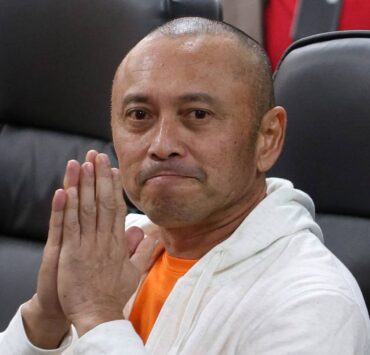SC: Hiding homosexuality ground for annulment

Hiding one’s homosexuality from a spouse can be considered fraud and may be used as a ground to void a marriage, the Supreme Court said as it annulled the union of a woman whose husband hid his sexual orientation before they got married.
In an eight-page decision promulgated on March 3 and made public on Tuesday, the high court’s Second Division said it was convinced that the petitioner’s allegations against her husband were not “mere baseless perception” or “malicious interpretation” of his peculiarities.
“With the lies and deception, coupled by their failure to cohabit as husband and wife, it is evident that [he] merely tricked [her] to marry him by making her believe that he is a heterosexual,” the Supreme Court said in the ruling on G.R. No. 268109 penned by Associate Justice Antonio Kho Jr.
The high tribunal reversed and set aside a trial court and the Court of Appeals’ (CA) decisions that denied the wife’s petition for annulment.
It declared the spouses’ marriage annulled on the ground of fraudulent concealment of homosexuality under Article 45(3) in relation to Article 46(4) of the Family Code.
The former spouses met online in 2010. At the time, the husband was working in Saudi Arabia.
Seemingly distant
A year after, they became a couple and in 2012, the man returned to the Philippines for a vacation and finally met with the woman.
On their first date, she noticed how they only seemed like they were “mere friends,” with the man being distant from her.
When she confronted him about his behavior, he only confessed that he was the timid type and that he lacked self-confidence.
It was around that time when she learned that she was his first girlfriend despite him being 31 years old.
In 2013, the two got married in Marinduque province. After their wedding, they went home to their new house in Imus, Cavite, and had an “unusual honeymoon.”
He allegedly made excuses whenever she would initiate intimate activities.
Magazines
Two years later, the woman found bundles of magazines of male models who were either half-naked or naked in her husband’s belongings.
When another confrontation ensued, he admitted that he was homosexual. This prompted her to leave their conjugal house and return to her parents in Caloocan.
In 2017, she filed the petition for annulment before the trial court.
The trial court denied the petition for lack of merit, ruling that she failed to establish her husband’s homosexuality. The CA in 2023 affirmed the ruling.
The Supreme Court, however, found merit in the woman’s petition, saying marriage is a “special contract of permanent union between a man and a woman entered into in accordance with law for the establishment of conjugal and family life.”
Must be freely given
“To be valid, consent must be freely given by both parties. Thus, a marriage may be annulled when consent was obtained by fraud,” it said.
The high tribunal said that after examining the records, contrary to the rulings of the lower courts, the petitioner was able to prove that her husband fraudulently concealed his homosexuality, thus impairing her consent to enter into a marriage with him.
“The admission of [the man] and the unexplained prolonged silence to negate the allegation as to his homosexuality cannot be taken lightly by the Court. No woman would put herself in a shameful position if the fact that she married a homosexual was not true,” it said.
“More so, no man would keep silent when his sexuality is being questioned thus creating disgrace in his name,” the Supreme Court added.
Fraud would have continued
The high court cited the husband’s admission, which, the justices said, only showed that he waited for their marriage before confessing his homosexuality.
“In fact, had it not been due to the discovery of the magazines, [the husband] would have continuously defrauded [his wife] until this day,” it said.
The Supreme Court also noted the “unusual honeymoon” when the husband preferred to spend his time alone or to talk about anything, but their married life and sexual intimacy.
“Worse, just two months after their wedding [the husband] went back to Saudi Arabia and stopped communicating with [her]. It thus appears that [his] actions towards [her] were done with the intent of keeping the latter in the dark about [his] sexuality,” the Supreme Court said.

















